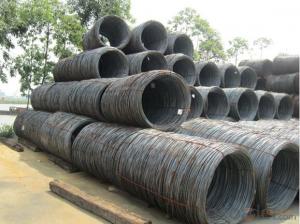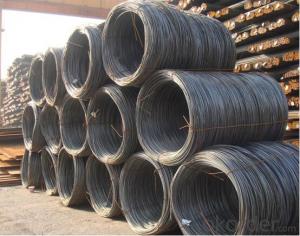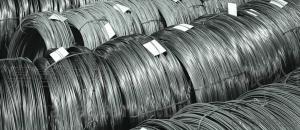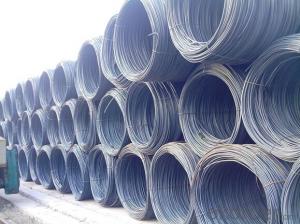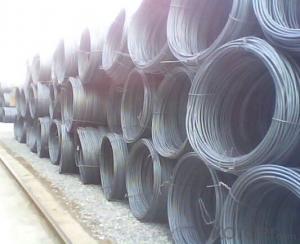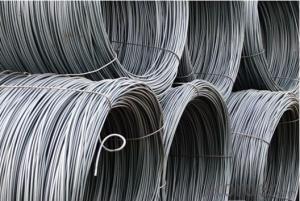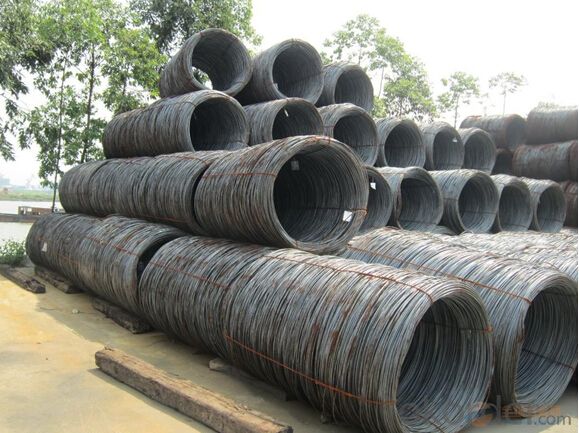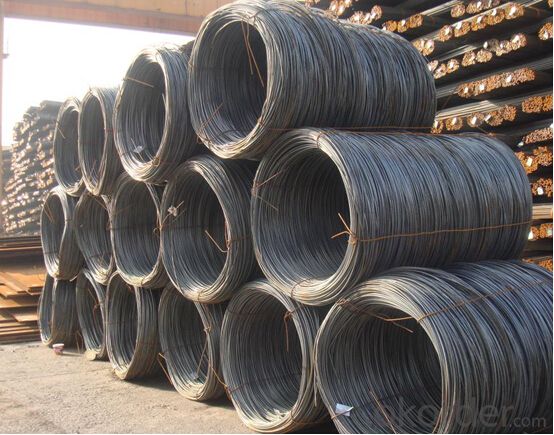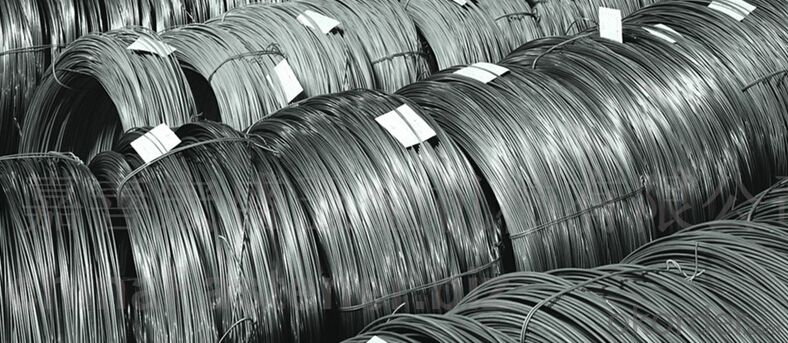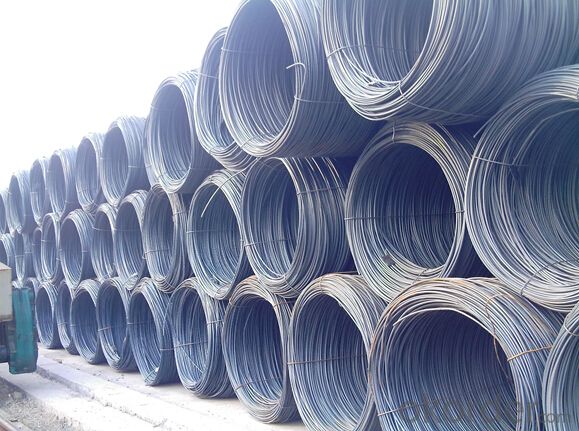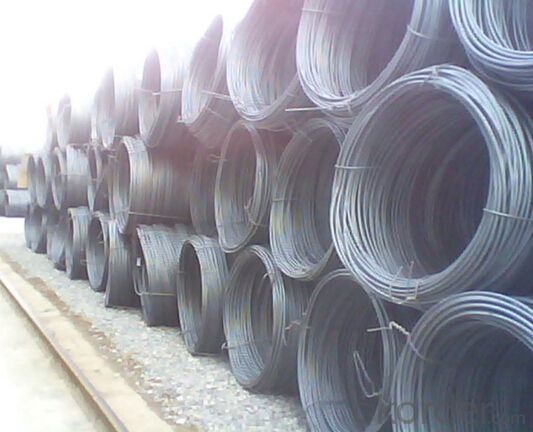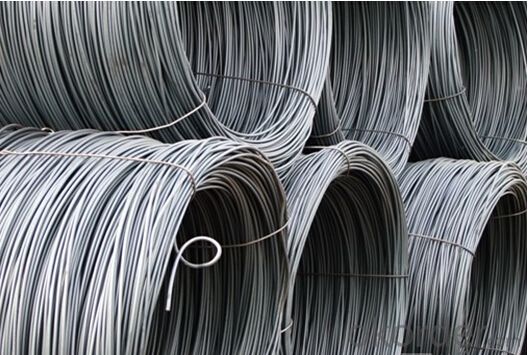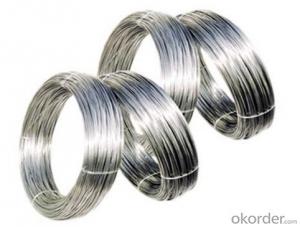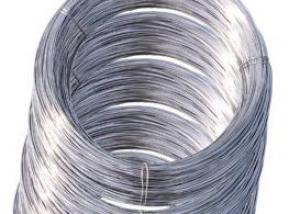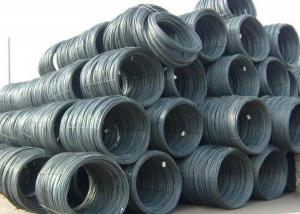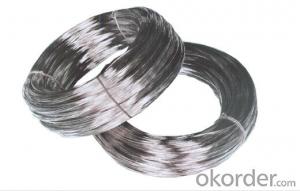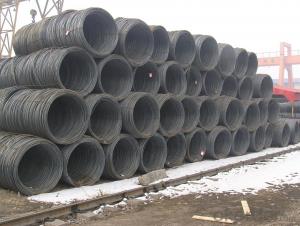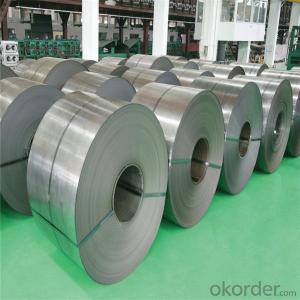Grade 304 Stainless Steel wire rod in Coils
- Loading Port:
- Tianjin
- Payment Terms:
- TT OR LC
- Min Order Qty:
- 3 m.t.
- Supply Capability:
- 10000 m.t./month
OKorder Service Pledge
Quality Product, Order Online Tracking, Timely Delivery
OKorder Financial Service
Credit Rating, Credit Services, Credit Purchasing
You Might Also Like
Specification
Type:
Carbon Steel,Spring Steel,Bearing Steel,Gear Steel,Deformed Steel,Stainless Steel,Alloy Steel
Shape:
Steel Coil,Steel Sheet,Steel Wire Rod,Steel Flat Bar,Steel Square Bar,Steel Angle,Steel Round Bar,Steel Billets
Technique:
Hot Rolled,Cold Rolled,Cold Drawn,ERW,Forged,Saw,Extruded,EFW,Spring
Surface Treatment:
Galvanized,Coated,Copper Coated,Color Coated,Oiled,Dry,Chromed Passivation,Polished,Bright,Black,PVDF Coated
Certification:
ISO,SGS,BV,IBR,RoHS,CE,API,BSI,UL
Thickness:
0.01-3.0mm
Width:
0.01-3.0mm
Length:
In coils
Outer Diameter:
0.01-3.0mm
Net Weight:
2m.t.
Packaging:
Seaworthy packaging
Grade 304 Stainless Steel wire rod in Coils
Detailed Information of the Grade 304 Stainless Steel wire rod in Coils
| Name | Hot Rolled High Carbon Wire Rod |
| Shape | Round Bar/Square Bar/Flat Bar/Plate/Wire |
| Standard | GB/ASTM/SAE/AISI/DIN/JIS/EN/BS |
| Surface Treatment: | Black/Peeling/Polished/Machined |
| Delivery Condition: | Hot Rolled or Forged/Peeled or Black Surface |
| Test | SGS/UT 100% Elements Testing |
| Certificate: | ISO/Mill Certificate |
| Service: | 24 hours online service / |
| more than 20 years trading and manufacture | |
| Quality Assurance: | the third party inspection, such as SGS, BV, TUV…etc. is acceptable |
| Packaging Details: | Seaworthy Packaging or as per customer's packing instruction |
Chemical Composition of the Grade 304 Stainless Steel wire rod in Coils
| Grade | Chemical Composition(%) | |||||
| C | Mn | Si | S | P | B | |
| SAE1008 | 0.1max. | 0.3~0.50 | 0.15max | 0.050max | ≤0.040 | >0.0008 |
| Mechanical properties | ||||||
| Yield strength(N/mm2) | Tensile strength(N/mm2) | Elongation(%) | ||||
| 250-280 | 350-380 | ≥32 | ||||
Company Introduction the Grade 304 Stainless Steel wire rod in Coils
CNBM International Corporation is the most import and export platform of CNBM group(China National Building Material Group Corporation) ,which is a state-owned enterprise, ranked in 270th of Fortune Global 500 in 2015.
With its advantages, CNBM International are mainly concentrate on Cement, Glass, Iron and Steel, Ceramics industries and devotes herself for supplying high quality series of refractories as well as technical consultancies and logistics solution.
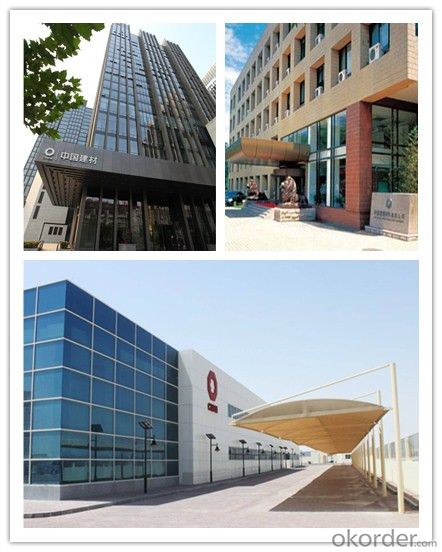
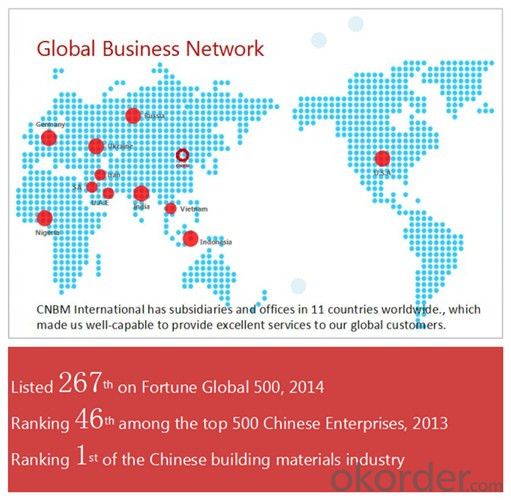
| After-sale service | CNBM provides the services and support you need for every step of our cooperation. We’re the business partners you can trust; you can relax and get on with doing business. |
| For any problem, please kindly contact us at any your convenient time, we’ll reply you in our first priority within 24 hours | |
| Advantages | Industry experience over 20 years. |
| Shipment of goods -More than 70 countries worldwide. | |
| The most convenient transport and prompt delivery. | |
| Competitive price with best service. | |
| High technical production line with top quality products. | |
| High reputation based on best quality products. |
Packaging & Delivery the Grade 304 Stainless Steel wire rod in Coils
| Packaging Detail | Sea worthy packing /as per customer's packing instruction |
| Delivery Detail | 15 ~ 40 days after receiving the deposit |
Products Show
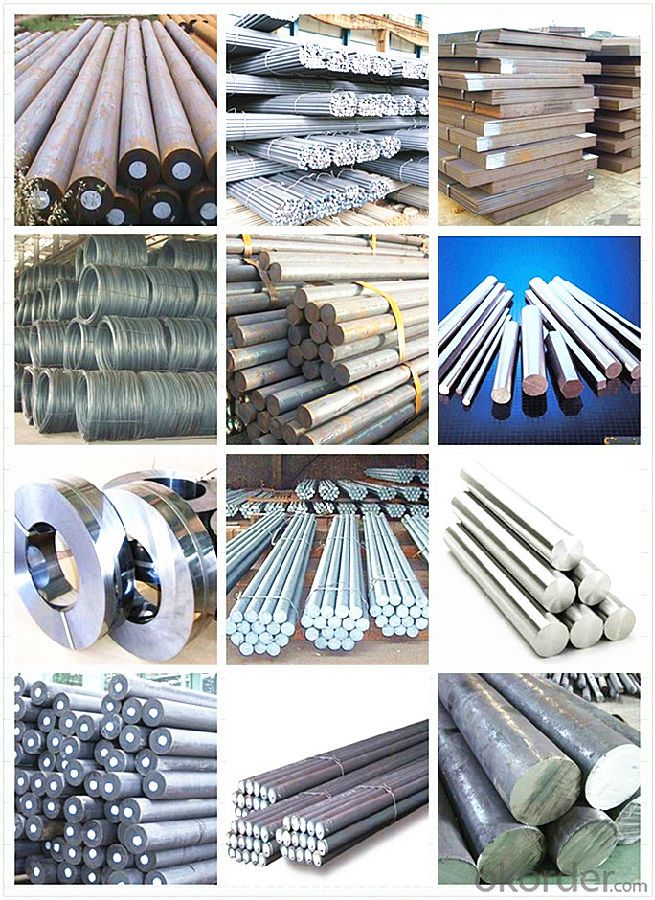
FAQ:
| Are you a trader or manufacturer? | Manufacturer |
| What’s the MOQ? | 3 metric ton |
| What’s your delivery time? | 15-35 days after downpayment received |
| Do you Accept OEM service? | Yes |
| what’s your delivery terms? | FOB/CFR/CIF |
| What's the Payment Terms? | 30% as deposit,70% before shipment by T/T |
| Western Union acceptable for small amount. | |
| L/C acceptable for large amount. | |
| Scrow ,Paybal,Alipay are also ok | |
| Why choose us? | Chose happens because of quality, then price, We can give you both. |
| Additionally, we can also offer professional products inquiry, products knowledge train (for agents), smooth goods delivery, excellent customer solution proposals. | |
| What's your available port of Shipment? | Main Port, China |
| What’s your featured services? | Our service formula: good quality+ good price+ good service=customer's trust |
| Where are your Market? | Covering more than 160 countries in the world |
- Q: What are the key alloying elements used in special steel?
- The specific application and desired properties determine the key alloying elements used in special steel. Some commonly used alloying elements in special steel are chromium, nickel, molybdenum, vanadium, tungsten, and cobalt. To enhance the steel's hardness, wear resistance, and corrosion resistance, chromium is often added. Nickel, on the other hand, increases the steel's strength, toughness, and corrosion resistance. Molybdenum is commonly used to improve the steel's high-temperature strength, resistance to creep, and resistance to corrosion by certain chemicals. Vanadium is added to increase the steel's strength, toughness, and wear resistance, especially at high temperatures. Tungsten is another element used to enhance the steel's high-temperature strength and wear resistance. Cobalt, on the other hand, is often added to improve the steel's strength and toughness, particularly at elevated temperatures. These alloying elements are carefully chosen and added in specific proportions to achieve the desired properties for various applications, including aerospace, automotive, energy, and tooling industries. By incorporating these alloying elements, special steel can be customized to meet specific performance requirements, making it suitable for a wide range of demanding applications.
- Q: What are the main manufacturing processes for special steel?
- The main manufacturing processes for special steel typically include melting, refining, casting, hot rolling, heat treatment, and finishing.
- Q: What are the challenges in forging special steel?
- Forging special steel poses several challenges, primarily due to its composition and properties. One challenge is achieving the desired microstructure and alloy distribution throughout the steel during the forging process. Special steels often contain complex alloys, which can be difficult to evenly distribute and maintain during forging. Another challenge is controlling the temperature and heat treatment processes to avoid any detrimental effects on the steel's mechanical properties. Special steels are sensitive to temperature changes, and improper heating or cooling can lead to structural weaknesses or loss of desired properties. Additionally, forging special steels may require specialized equipment and techniques to accommodate their unique characteristics, making the process more intricate and demanding.
- Q: What are the main characteristics of corrosion-resistant castings?
- Corrosion-resistant castings have been designed to endure the destructive effects of corrosion, a natural process that causes the deterioration of metal surfaces due to chemical reactions. These castings possess several key features that render them impervious to corrosion. First and foremost, corrosion-resistant castings are fashioned from specific alloys or materials that possess inherent resistance to corrosion. These materials may consist of stainless steel, nickel-based alloys, or high-performance alloys such as Inconel or Hastelloy. These alloys contain elements like chromium, molybdenum, or nickel, which generate a protective layer on the casting's surface, preventing the infiltration of corrosive agents into the underlying metal. Secondly, meticulous casting techniques are employed in the production of these castings to ensure a solid and defect-free structure. This is crucial in warding off the penetration of corrosive substances into the castings. Techniques such as investment casting or vacuum casting are commonly utilized to achieve a high degree of precision and quality. An additional significant characteristic of corrosion-resistant castings is their ability to withstand various types of corrosion, including general corrosion, pitting corrosion, crevice corrosion, and stress corrosion cracking. General corrosion refers to the gradual and uniform deterioration of the metal surface, while pitting corrosion leads to the formation of localized holes or pits. Crevice corrosion occurs in confined spaces such as gaps or joints, and stress corrosion cracking arises from the combined effects of stress and a corrosive environment. Corrosion-resistant castings are designed to endure all these types of corrosion, ensuring long-lasting durability and dependability. Furthermore, corrosion-resistant castings often undergo additional surface treatments or coatings to enhance their resistance to corrosion. These treatments may encompass passivation, where the surface is treated chemically to create a protective oxide layer, or the application of protective coatings such as epoxy or polyurethane. These treatments provide an additional layer of defense against corrosive agents, prolonging the lifespan of the castings. In conclusion, the primary characteristics of corrosion-resistant castings include the utilization of corrosion-resistant alloys, meticulous casting techniques, resistance to various types of corrosion, and the application of surface treatments or coatings. These characteristics ensure that these castings can endure harsh environments and maintain their structural integrity over time, making them ideal for applications where corrosion poses a significant concern.
- Q: How is stainless steel used in the food and beverage industry?
- Stainless steel is widely used in the food and beverage industry due to its excellent properties. It is commonly used to manufacture equipment, such as tanks, piping, and storage containers, because of its resistance to corrosion, heat, and chemical reactions. Stainless steel's smooth surface also prevents the growth of bacteria, making it ideal for food processing and storage. Additionally, its durability and easy-to-clean nature ensure hygienic conditions and maintain the quality and safety of food and beverage products.
- Q: Can special steel be used in railway applications?
- Yes, special steel can be used in railway applications. Special steel, also known as alloy steel or high-strength steel, possesses unique properties that make it suitable for various demanding applications, including railways. Special steel offers superior strength, durability, and resistance to wear, making it ideal for railway components that are subjected to high loads, vibrations, and extreme conditions. In railway applications, special steel is commonly used for manufacturing rails, wheels, axles, and other critical components. Rails made from special steel can handle heavy train traffic and provide a smooth and stable ride while resisting wear and deformation. Special steel wheels and axles offer high strength and toughness, ensuring safe and reliable operation even under heavy loads and high-speed conditions. Additionally, special steel is often used in the construction of railway bridges, tunnels, and other infrastructure projects. Its exceptional strength and resistance to corrosion and fatigue make it suitable for supporting heavy trains and withstanding the environmental challenges of railway construction. Moreover, the use of special steel in railway applications can contribute to cost savings and efficiency improvements. Its high durability and resistance to wear reduce the need for frequent maintenance and replacement, leading to lower maintenance costs and extended service life for railway components. Overall, special steel provides the necessary strength, durability, and performance required for railway applications. Its unique properties make it an ideal choice for ensuring the safety, reliability, and efficiency of rail transportation systems.
- Q: How does special steel perform in terms of wear resistance?
- Special steel performs exceptionally well in terms of wear resistance. It is specifically engineered to withstand abrasive forces, making it highly durable and long-lasting even in demanding environments. The unique composition and heat treatment processes used in its production enhance its hardness, toughness, and ability to resist wear, ensuring that it can withstand friction, impact, and other forms of wear and tear with minimal degradation.
- Q: How does special steel contribute to improving product durability?
- Special steel contributes to improving product durability in several ways. Firstly, special steel is known for its high strength and toughness, which makes it more resistant to wear and tear. This means that products made with special steel are less likely to develop cracks, deformations, or other forms of damage during regular use. Additionally, special steel often has enhanced corrosion resistance properties, making it more resistant to rust and other forms of degradation. This helps to prolong the lifespan of products, particularly those exposed to harsh environments or extreme weather conditions. Moreover, special steel can also offer increased heat resistance, enabling products to withstand high temperatures without losing their structural integrity. Overall, the use of special steel in manufacturing processes significantly enhances the durability and longevity of products.
- Q: How is HSLA steel used in the construction industry?
- HSLA (High-Strength Low-Alloy) steel is commonly used in the construction industry due to its exceptional strength and durability. It is utilized in various applications such as building frames, bridges, pipelines, and structural components. HSLA steel's high tensile strength allows for lighter and more efficient designs, while its resistance to corrosion ensures longevity in harsh environments. Additionally, its weldability and formability make it versatile for different construction projects.
- Q: How does special steel contribute to the defense aftermarket industry?
- The defense aftermarket industry heavily relies on special steel to manufacture essential materials for defense equipment and components. Special steel possesses exceptional properties, including strength, durability, and resistance to corrosion and extreme temperatures, making it the preferred choice for producing military vehicles, aircraft, weapons, and defense systems. One significant contribution of special steel to the defense aftermarket industry is its use in armor and ballistic protection. By utilizing special steel alloys, armor plates and panels can be created to withstand high-velocity impacts, providing crucial protection for military personnel and vehicles against enemy fire. These materials offer enhanced protection, reducing the risk of casualties and damage during combat. Furthermore, special steel is essential in the production of aerospace components. Military aircraft are vital for various defense operations, such as reconnaissance, surveillance, and combat. Special steel alloys ensure the safety, reliability, and performance of these aircraft by manufacturing critical components like landing gear, engine parts, and structural elements. Special steel's resistance to corrosion and extreme conditions also makes it suitable for constructing naval vessels and submarines. These assets operate in harsh marine environments, facing saltwater, extreme temperatures, and constant mechanical stress. Special steel alloys with high-strength properties and corrosion resistance are utilized in building ship hulls, propeller shafts, and critical components, ensuring longevity and operational effectiveness. Moreover, special steel contributes to the defense aftermarket industry through its role in the supply chain. The production and maintenance of defense equipment and components often require specialized machinery and tools, which are made from special steel. The availability of these materials is crucial for maintaining a robust defense industry and enabling efficient production and maintenance of defense systems. In conclusion, special steel plays a vital role in the defense aftermarket industry by providing the necessary materials for producing high-performance, reliable, and durable defense equipment. Its unique properties contribute to the safety, effectiveness, and longevity of military vehicles, aircraft, weapons, and naval vessels, ultimately enhancing the capabilities of defense forces worldwide.
Send your message to us
Grade 304 Stainless Steel wire rod in Coils
- Loading Port:
- Tianjin
- Payment Terms:
- TT OR LC
- Min Order Qty:
- 3 m.t.
- Supply Capability:
- 10000 m.t./month
OKorder Service Pledge
Quality Product, Order Online Tracking, Timely Delivery
OKorder Financial Service
Credit Rating, Credit Services, Credit Purchasing
Similar products
Hot products
Hot Searches
Related keywords
